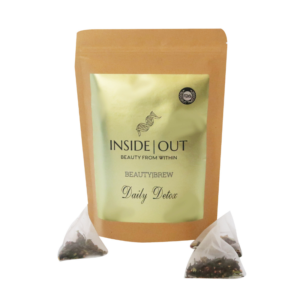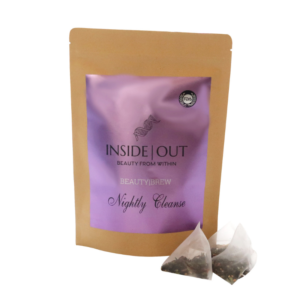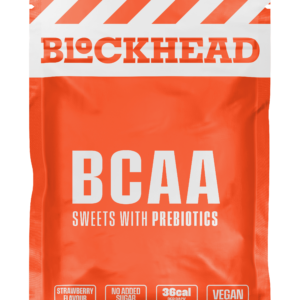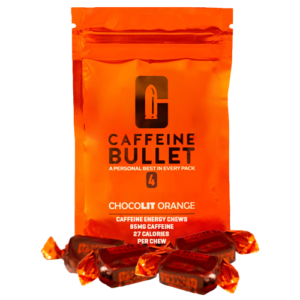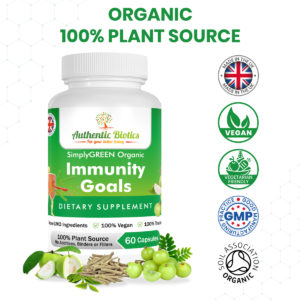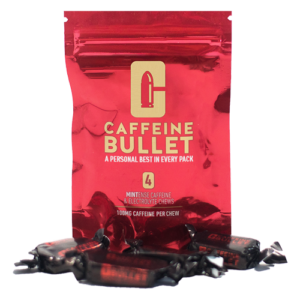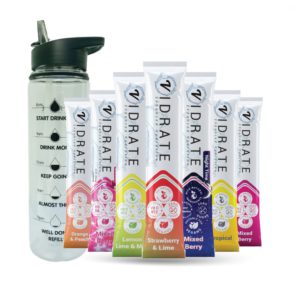Cricket Protein: More Effective For Muscle Growth Than Whey?
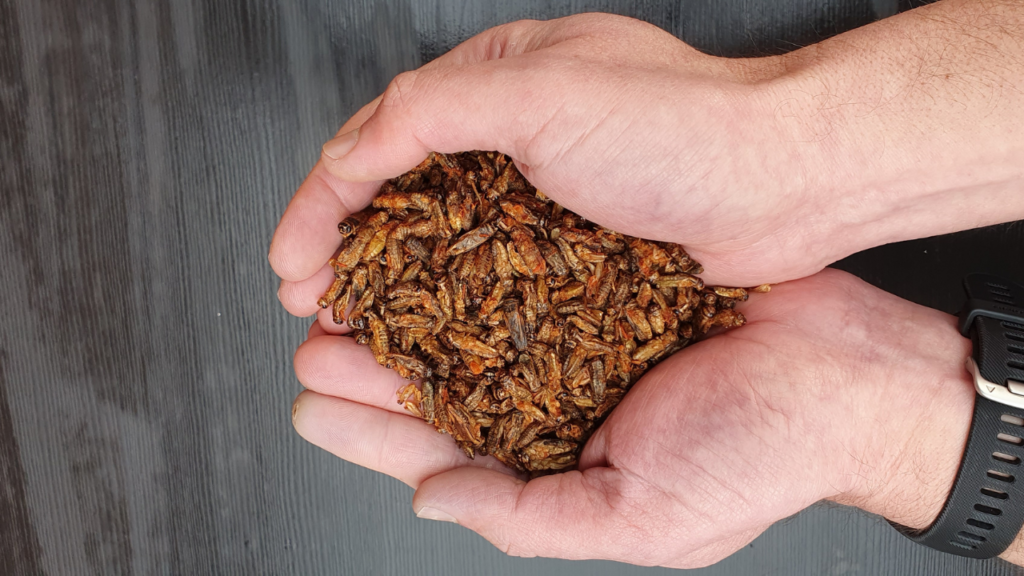
Research by Protein Rebel + Aelius Biotech suggests that cricket protein may “rival” whey when it comes to delivering the correct amino acids for muscle growth.
Athletes: listen up! Gut research could have major implications for the sports nutrition industry. Cricket protein may be more effective than whey at delivering the amino acids required for muscle growth.
Research conducted by Aelius Biotech (in partnership with sports nutrition company, Protein Rebel) has shown that the digestibility of powdered crickets in a small intestinal model is potentially 50% higher than a standard whey protein, which is shocking, considering that for over 20 years now, whey has been regarded as “the best protein for muscle building,” due to its fast digestion and complete amino acid profile.
Undertaken by the gastrointestinal research organisation, Aelius Biotech (a spin-out of the Medical School at Newcastle University), this is the first known research of its kind that compares the digestibility of cricket protein against whey protein. The research involved modelled the human digestive tract, using a patented model of the human mouth, stomach, and the small intestine, – which simulates the digestive processes.
By simulating the digestion of cricket protein against an equivalent amount of standard whey protein, the digestibility of each can be compared: “our tests showed faster and higher rates of protein digestion with the cricket powder, compared to whey protein. Proteins must be broken up into their ‘building blocks,’ so that they can be absorbed and used for muscle protein synthesis and muscle growth,” said Peter Chater, the Co-Founder and CEO at Aelius Biotech.
The graphs below show the digestibility of a standard portion of cricket powder (27.2g), as compared to an equivalent amount of whey supplement.
The Nutritional Breakdown of Cricket Protein Powder:
| Per 100g | |
| Energy | 1910kJ/456.6kcal |
| Fat | 17.76g |
| of which saturates | 5.18g |
| Carbohydrate | 4.16g |
| of which sugars | 0g |
| Fibre | 0g |
| Protein | 69.5g |
| Salt | 0g |
The Typical Nutritional Breakdown of Standard Whey Powder:
| Per 100g | |
| Energy | 1740 kJ/412 kcal |
| Fat | 7.5 g |
| of which saturates | 5.0 g |
| Carbohydrate | 4.0 g |
| of which sugars | 4.0 g |
| Fibre | 0 g |
| Protein | 82 g |
| Salt | 0.50 g |
Typically, it’s your small intestine that is the major site of amino acid absorption. Therefore, the greater the digestion of the protein at this stage, the sooner the amino acids or protein building blocks can ‘trigger’ muscle protein synthesis (MPS), which ultimately leads to muscle growth.
“This is a promising first step in determining the effectiveness of cricket protein. Digestion and amino acid absorption are some of the key determinants of a protein’s ability to stimulate muscle protein synthesis, and this data would suggest that cricket protein has the potential to rival whey. I’m excited to see the results of future peer-reviewed studies on real people,” said Jamie Highton, a Professor of Applied Sports Physiology at the University of Chester.
As cricket protein has a complete amino acid profile and is 50% more digestible than whey, this indicates that it has the potential to promote muscle growth to at least the same level, if not far better, than whey protein. In addition to its nutritional properties, cricket protein is also a much more sustainable source of protein: farming crickets requires far less land, water and feed than cows, and it emits only a fraction of the carbon compared to whey.
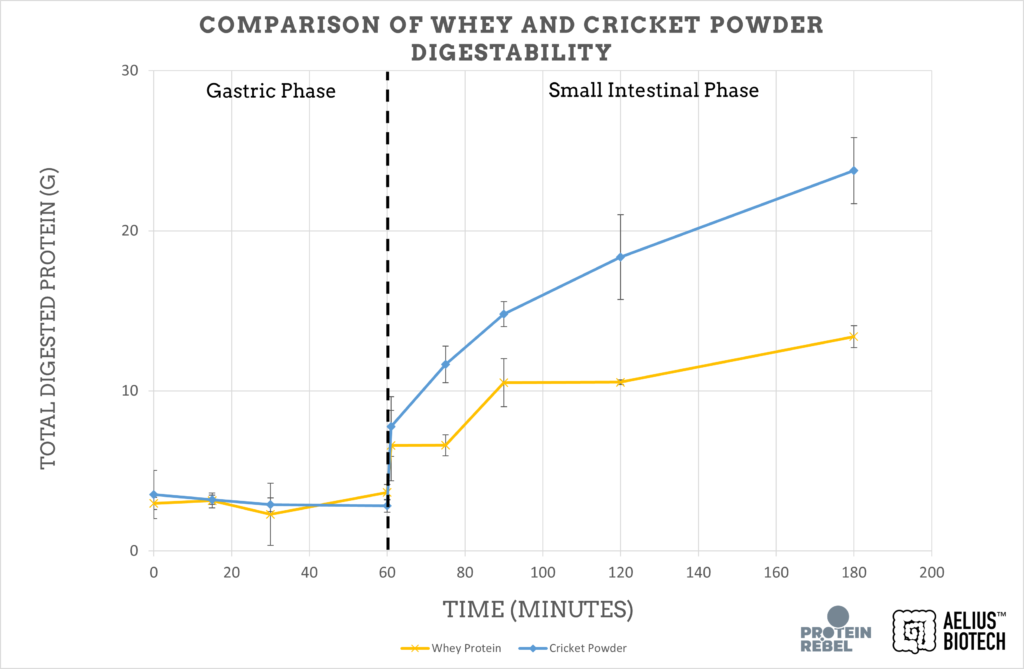
“It’s important that the sports nutrition industry considers its environmental impact and the sustainability of its products. We also want to ensure that athletes are having the optimum nutritional intake to support training, performance and adaptation. Exploring promising data like this is therefore important in examining the effectiveness of more sustainable protein sources,” added Professor Jamie Highton.
Whey protein still dominates the sports nutrition market, however, protein powders and shakes from alternative sources (such as soy and pea) are becoming high-demand products, with vegan protein powders seeing a surge in growth in 2020.
Whilst sports nutrition products derived from insects are still in their infancy, start-up brands such as Protein Rebel have identified major nutritional and environmental benefits of insects, and their potential to rival whey and other animal-based or synthetic proteins out there.
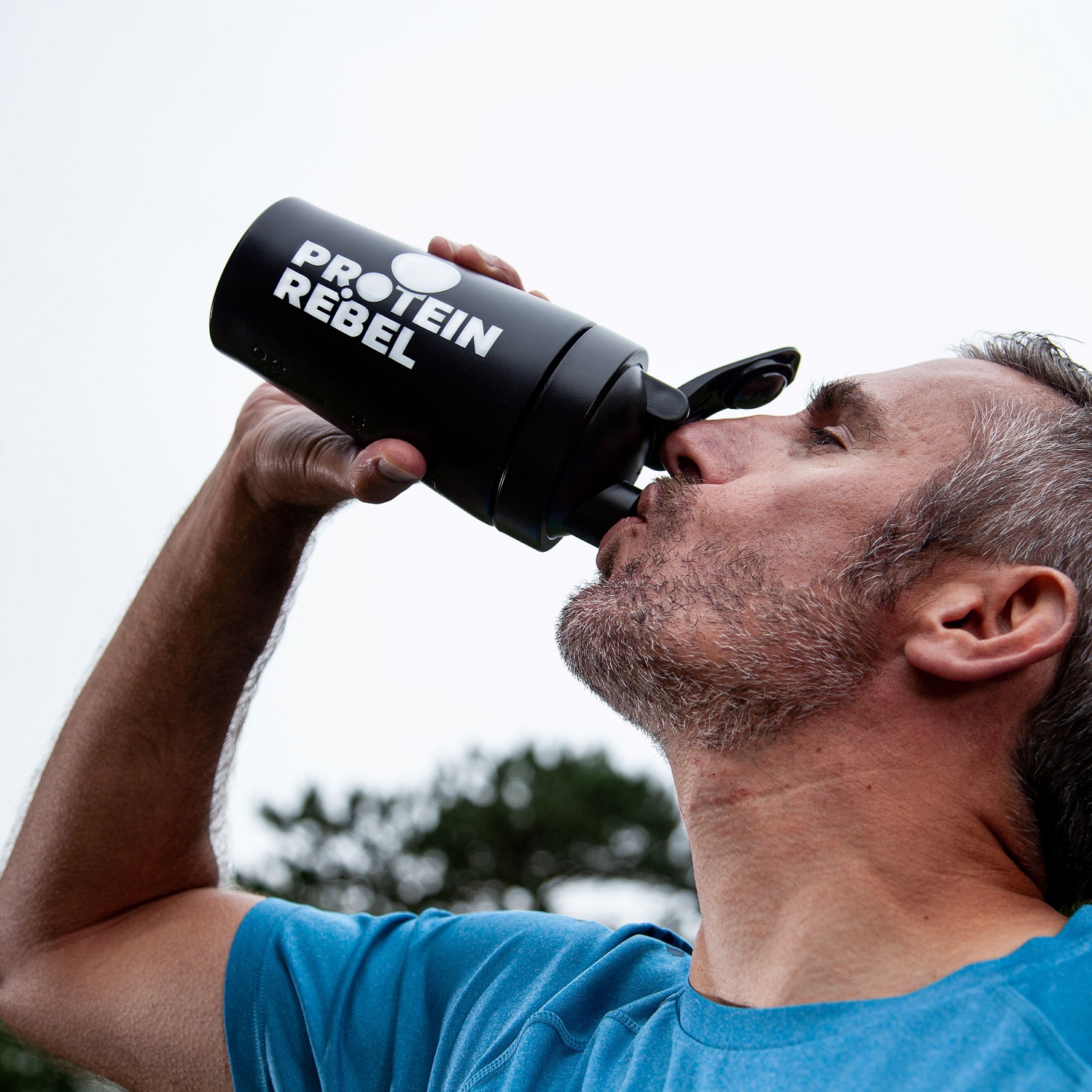
Capitalising on this emerging trend, Tim Boote, Protein Rebel’s Co-Founder explains: “Crickets have a really strong nutritional profile. They contain all of the essential amino acids, and various vitamins and minerals, and we recognised early-on that they’re incredibly easy to digest. This, together with their sustainability credentials, is why we use cricket protein in our post-workout powder.“
“However, until now, we haven’t had the robust scientific research to back up our anecdotal findings. The results of this gut research are really exciting, and it’ll make the sports nutrition industry [jump] up and take notice. We look forward to partnering with Aelius Biotech on further pioneering research, to gain a better understanding of how crickets compare with whey when it comes to promoting muscle growth,” he added.

Protein Rebel helps athletes to run faster, to jump higher, to lift more, and to cycle for longer. Launched in August 2020, the brand makes premium high-protein products that are easy to digest, are natural, and are kind to the planet.
“It took 18 months of development, 97 formulations, 3 insect species, and 2 cricket farms to get our formulations right. It’s been really important to get the nutritional balance correct, whilst reducing our products’ impact on the planet. We probably provide the world’s most sustainable protein powders, and this is being recognised by the industry,” said Tim Boote, Protein Rebel’s Co-Founder.
Built for endurance athletes, Protein Rebel’s vegan and cricket-based protein powders are dairy-free, soy-free, and rubbish free, AND they’ve won various leading sports nutrition awards. ‘Recover’ was named as a “recommended protein powder,” by Men’s Fitness Magazine. Their most popular product, ‘Reload’ is a blend of pea protein and cricket protein. Purchasing a tub of Reload (rather than an equivalent tub of whey protein) saves 44kg of carbon.
Reload products have won the European Specialist Sports Nutrition Award for “most sustainable protein powder,” and the UK’s toughest health food award (The Nourish Awards) under the “high protein” category.
Find out more here: https://proteinrebel.com
And don’t forget to check out Tim Boote from Protein Rebel’s PRODUCTcast video on GramersiTV below.


